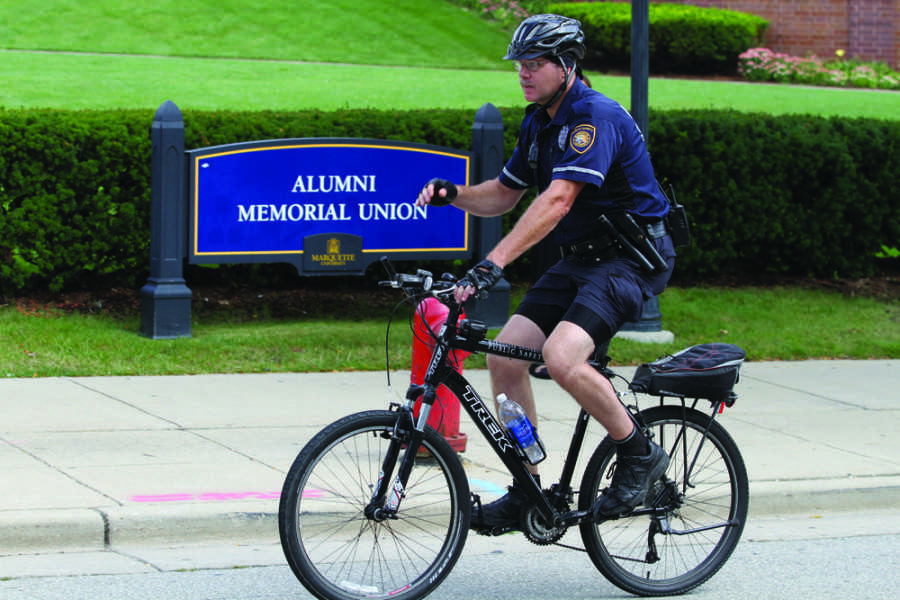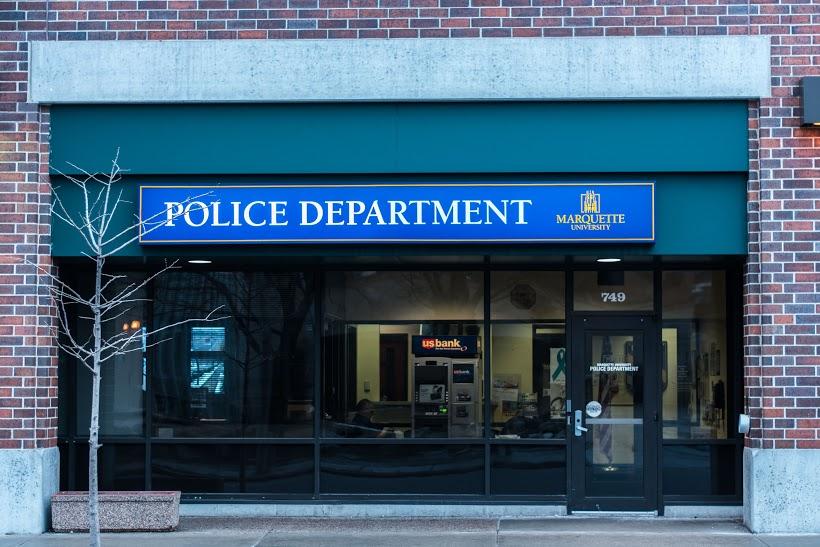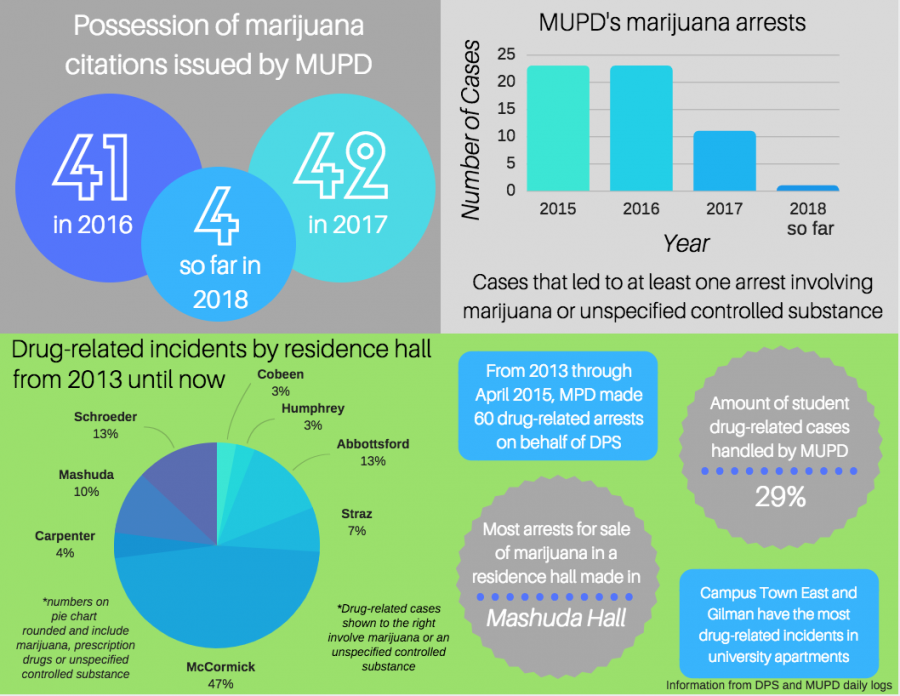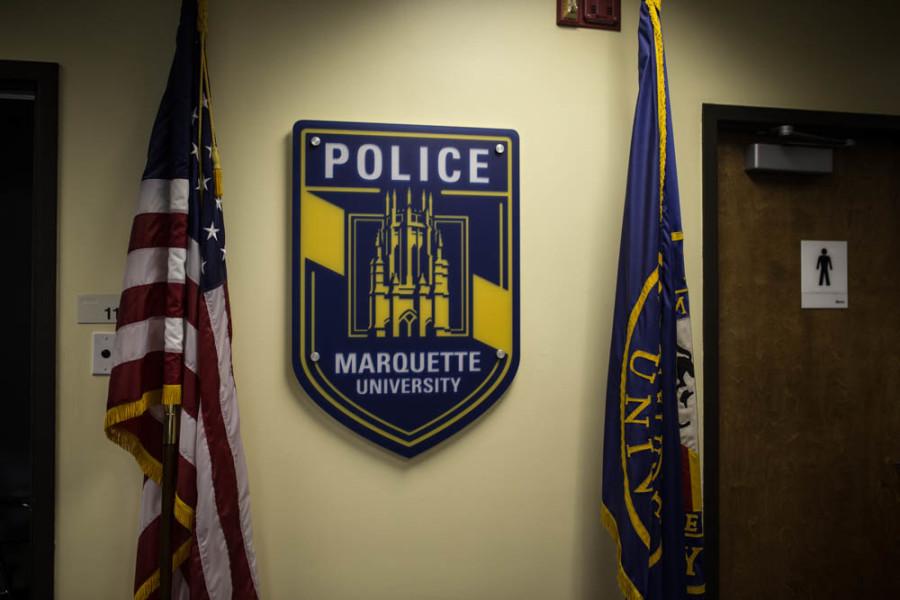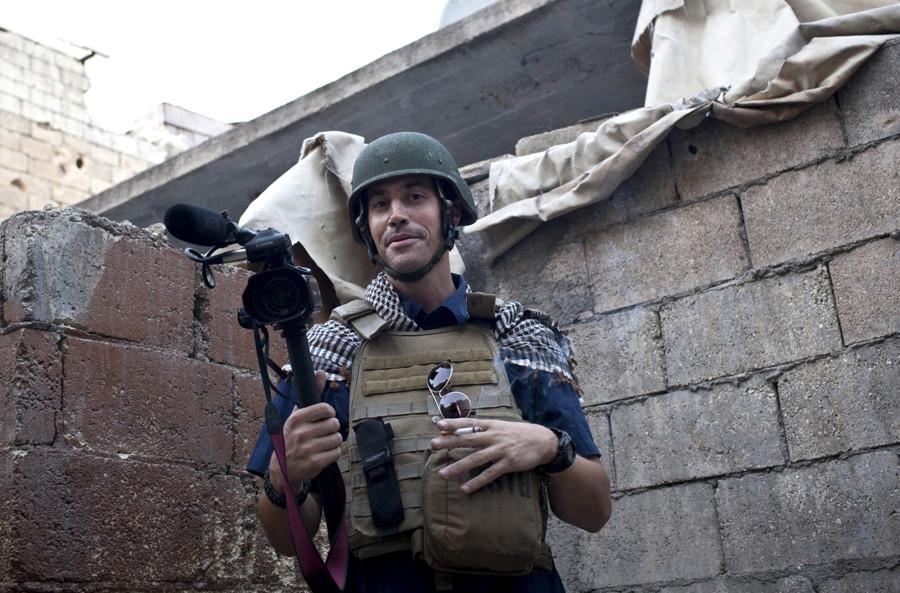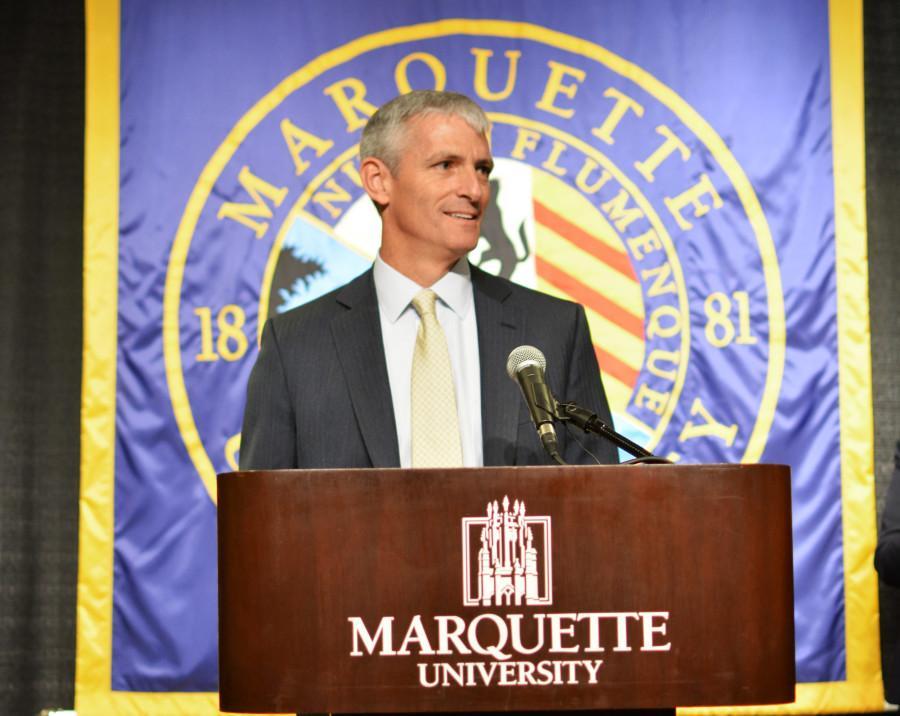At an open student forum in the Alumni Memorial Union ballrooms Monday evening, the Department of Public Safety received community input on commissioning a Marquette police force.
Sponsored by Marquette Student Government, the forum is intended to help give feedback to DPS to help create a plan, in addition to giving President Lovell information on what the community has to say. The panel whom responded to the audience consisted of: Chief and Director of DPS Paul Mascari, Associate General Council Doug Smith and L. Chrsitopher Miller, vice president of Student Affairs.
Last April, Gov. Scott Walker came to campus to sign legislation granting Marquette the power to transition DPS into a police force. The legislation, authored by Rep. Dale Kooyenga (R-Brookfield) and State Sen. Alberta Darling (R-River Hills), gave Marquette the option to commission, leaving the decision up to the University President Michael Lovell.
J.R. O’Rourke, a Residential Senator for O’Donnell Hall, questioned the panel on what it believed the biggest downfall of commissioning a police force would be.
“If you make a transition like this I think it is easy to assume that (DPS) has to change or that the relationship (with students) will have to be changed and (with a police force) it doesn’t have to change,” Mascari said in response.
Mascari echoed the fact that the lack of power DPS has is a continual issue in maintaining safety standards around the designated patrolling boundaries. He used the example of two DPS officers waiting with a student for a Milwaukee Police Department officer to arrive because of the limitations DPS has as safety patrollers.
“An alcohol citation that will take 20 minutes to write [for MPD], takes hours for us,” Mascari said.
Emphasis was also placed upon the fact that a Marquette police force would not change MPD’s boundaries, and incidents would still need to be reported to MPD.
If a crime by a non-Marquette student is committed, Marquette would act as an overseer of the situation until MPD arrived. There are certain resources, such as sexual assault investigations, that Marquette would not be equipped for, where MPD would still prove necessary.
The issue of DPS being a privately-funded task force for a public cause was raised, citing the issue as a “conflict of interest.”
Smith explained that open records do not exist in a lot of other police departments and would make it a goal of a Marquette police force to promote credibility.
Furthermore, Smith continued on that “allegations against anybody will all be referred automatically to MPD for investigation.”
“This whole concept of safety has been elevated to a higher plane and since there is a higher plane for consciousness, there is a a greater need to provide safe resources,” Miller said.
Miller continued on that if the resources are available, there is absolutely no reason to push forward with getting a police force.
The vast majority of the students appeared to be pleased with the potential of DPS becoming a police force. O’Rourke said he “hopes MUSG can help get the word out (about the intentions of the police force.)”
DPS is still in the discussion phase of commissioning the police force, and urges students and residents of Milwaukee to go online and share their thoughts about the potential change to DPS.
Mascari finished the forum by discussing the needs of the Marquette community and extending the message that there is a lack of authority for DPS, and in order to be as resourceful as possible for student safety, this is the logical next step for Marquette to take.

